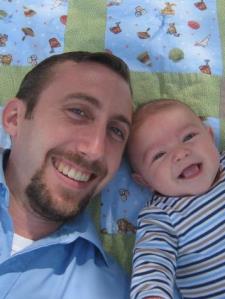A gerund is a special kind of noun that we make from a verb. Any verb can be made into a gerund by adding the ending -ing. Look at the following examples:
Verb Gerund
run running
work working
Because a gerund is a noun, a gerund can do anything that a noun can do within a sentence. A gerund can be the subject in a sentence, the direct object in a sentence, the object of a preposition in a sentence, and the complement of the verb "be" in a sentence. Here are 4 examples of this:
1. Running is good cardiovascular exercise. (subject in sentence)
2. Many people don't enjoy working at their jobs. (direct object in sentence)
3. Elena is excited about working at her new job. (object of the preposition "about.")
4. One of the most popular exercises is running. (complement of verb "be.")
A gerund is a noun. It does not describe another word in the sentence. Think of it as an "activity."
__________________________________________________________________________________
A participle is very different from a gerund. While a gerund works as a noun, a participle works as an adjective. The purpose of an adjective is to describe a noun or a pronoun. Therefore, a participle always describes a noun or a pronoun in the same sentence. There are two kinds of participles: present participles and past participles. Present participles end in -ing, so these kinds of participles are sometimes confused with gerunds because they look exactly the same. A present participle is made the same way as a gerund, that is, by taking a verb and adding -ing. Therefore, the words "running" and "working" listed above can also be used as participles. However, you can see that the way that they are used in sentences is very different. Here are examples of these words used as participles:
Running as fast as she could, Helen tried to catch the bus.
The dogs seemed to have endless energy, running around the park for hours.
Working late into the night, Paul was able to finish his essay.
The men closed all the lanes of the freeway, working to repair the damaged areas.
Participles may look similar to gerunds but their function in a sentence is very different. The job of a participle is to give information or describe another word in the sentence. This other words will always be a noun or a pronoun because participles act like adjectives and adjectives describe nouns or pronouns. You can put a participle before the noun it describes and it makes sense:
"running dogs"
"working men"
In conclusion, if the -ing word works like a noun in the sentence; in other words, you could imagine that it is an activity for which you could substitute the word "it," the -ing word is a gerund. "Running is good excerice." "It is good exercise."
On the other hand, if the -ing word works like an adjective in the sentence; in other words, you see another word in the sentence, a noun or a pronoun that it describes or refers to, the -ing word is a participle. Participles add descriptive information to nouns and pronouns found in the same sentence.













Nidhi C.
12/11/17